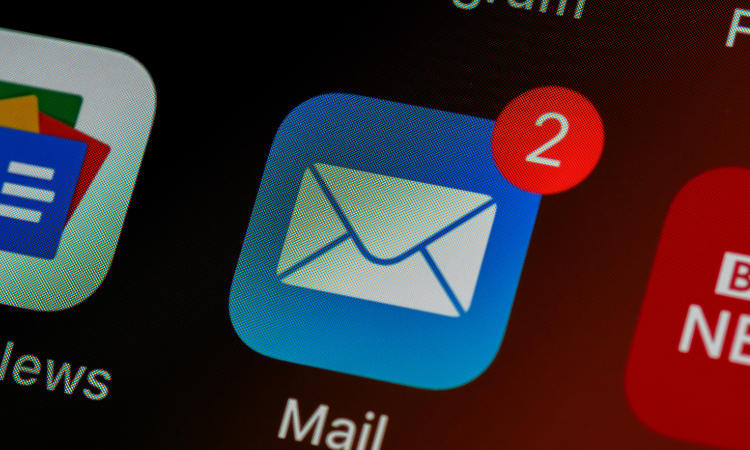How many unread emails are sitting idle in your inbox—100, 500, or maybe even more? With so much noise competing for attention, convincing someone to open your email survey can feel like an uphill battle.
It’s not just what you say inside the email that matters; it’s whether your recipients even make it past the subject line. According to research by Chadwick Martin Bailey, 47% of email recipients admit that a subject line alone can determine whether they’ll open an email.
In other words, almost half of your potential respondents judge your survey on its subject line before they’ve even read a word of your actual message. This tiny slice of digital real estate wields immense power over your open rates, click-throughs, and, ultimately, the success of your feedback campaigns.
A catchy, well-considered subject line can pique curiosity, inspire trust, and prompt action—all in a matter of seconds. So, if you’re tired of your surveys going unanswered, it’s time to give your subject lines the strategic edge they deserve.
In this blog post, we’ll explore why email survey subject lines matter so much, share real-world examples that can inspire your next survey outreach, and break down best practices for crafting catchy subject lines that drive results. Let’s dive in!
TL;DR
- Your subject line is the first impression of the email. Around half of all recipients decide to open (or ignore) an email based solely on its subject line, making it crucial for grabbing attention and setting expectations.
- Use clear, concise language, action-oriented verbs, and personalization. Testing and refining over time helps you find what resonates best with your audience.
- Keep it short for mobile readers, avoid spammy words, add urgency when relevant, experiment with emojis or humor, and continuously refresh your style with new subject lines to maintain engagement.
- Ready to turn these tips into action and boost your survey response rates? Take a demo of our product and start crafting better subject lines that drive real, actionable feedback.
Personalize Your Email Survey Subject Lines for Better Response
Use Zonka Feedback to personalize your email survey subject lines, captivate attention, increase engagement, and inspire your recipients to take action.

Understanding Email Survey Subject Lines
An email survey subject line is the gateway to your email—it’s the first text your recipient sees when your message appears in their inbox. Acting as a headline, it provides a quick glimpse into the email’s purpose, enticing the recipient to open and engage with your content.
-png.png?width=1844&height=707&name=frame_generic_light%20(21)-png.png)
A clear, well-crafted subject line not only helps your message stand out in a crowded inbox but also encourages recipients to open, read, and engage with the email’s content. In other words, it’s your best chance to make a strong first impression and show readers why they should pay attention. Personalizing email content, such as sending thank you messages after a customer places an order, can significantly enhance engagement and foster repeat business.
Why Good Subject Lines Matter in Survey Emails
Imagine receiving a hundred emails in a single day. What determines which ones you open and which ones you skip—or worse, mark as spam? Often, it’s the subject line.
Statistics tell a clear story: nearly half of all recipients (around 47%) decide whether to open an email based solely on its subject line. On the flip side, about 69% report emails as spam for the same reason. In other words, your subject line can single-handedly influence the success or failure of your email campaign.
Here’s why strong, well-crafted subject lines matter:
-
Grabbing Attention: Your subject line is the very first thing your audience sees. A compelling subject line cuts through inbox clutter and encourages readers to pause and open your message.
-
Setting Expectations: A good subject line tells recipients what to expect from your email. Clear, honest messaging helps build trust and ensures readers don’t feel misled once they open the email.
-
Boosting Deliverability: Certain words and phrases can trigger spam filters and prevent your email from ever reaching the inbox. Careful subject line wording helps you avoid this pitfall and maintain a good sender reputation.
-
Improving Open Rates: The right subject line can dramatically improve open rates, directly impacting your engagement, click-throughs, and ultimately, conversions. A more engaged audience leads to better marketing results.
-
Encouraging Engagement: Once you’ve caught their eye, a strong subject line can inspire readers to take the next step—whether that’s clicking a link, completing a survey, or making a purchase.
In essence, your subject line is your email’s first impression and a critical factor in capturing your audience’s interest.
Best Subject Lines for Your Next Survey Emails
When it comes to getting honest and actionable feedback, your email survey subject line is the first step. Tailoring it to the type of survey—whether it’s an NPS, CSAT, or CES questionnaire—can help set the right expectations and motivate recipients to share their thoughts. Below are different subject lines you can use or adapt for your campaigns.
For Net Promoter Score (NPS) Emails
Your NPS subject lines should encourage customers to share how likely they are to recommend your brand. A quick, focused prompt—infused with your unique brand voice—helps measure loyalty and reveal where you can level up your customer experience.
- [Name], How Likely Are You to Recommend Us?
- Your Opinion Fuels Our Growth – Share Your Score
- Would You Recommend Us? Tell Us in One Click
- We Value Your Loyalty – Rate Your Recent Experience
- Your Voice Shapes Our Future: How Did We Do?
- Help Us Improve with a Quick Recommendation Check
- Just One Question: Would You Recommend Us?
- A Minute for Your Opinion = A Better Experience for You
- [Name], Your Rating Means the World to Us
- We’re Listening: How Did We Measure Up?
For Customer Satisfaction (CSAT) Emails
CSAT surveys gauge overall satisfaction with a recent interaction or service. Subject lines in this category should prompt customers to quickly reflect on their experience and let you know if you met their expectations.
- [Name], Did We Meet Your Expectations Today?
- How Satisfied Were You with Your Recent Visit?
- Your Satisfaction Matters – Tell Us How We Did
- We Aim to Please: Rate Your Experience
- Share Your Thoughts: Was Everything Up to the Mark?
- How Did We Do This Time Around?
- Give Us Your Take: Thumbs Up or Room for Improvement?
- Quick Check-In: Were You Happy with Our Service?
- We Want to Know: How Was Your Experience?
- [Name], Is Our Service Hitting the Right Note?
For Customer Effort Score (CES) Emails
Customer Effort Score (CES) surveys measure how effortless it was for customers to achieve their goal. Your subject lines should highlight the simplicity factor, inviting respondents to share how easy (or challenging) it was to get what they needed.
- [Name], How Easy Was It for You Today?
- Smooth Sailing or Rough Waters? Your Input Counts
- How Simple Was Your Experience? Share in Seconds
- Did We Make Things Easy? We’d Love Your Feedback
- Just a Click Away: Rate How Effortless It Was
- How Quickly Could You Get What You Needed?
- A Simple Question: Was Our Process Easy for You?
- Your Convenience Matters – Let Us Know How We Did
- We Strive for Simplicity: How Did We Fare?
- Tell Us: Was It Easy to Get Help Today?
FOMO (Fear of Missing Out) Email Survey Subject Lines for CSAT Surveys
These subject lines tap into the “fear of missing out,” encouraging recipients to respond quickly before a window of opportunity closes.
- Don’t Miss Out! Your Feedback Could Shape Our Next Update
- Limited-Time Feedback Request: Help Us Improve Before It’s Too Late!
- Join Our Inner Circle: Share Your Input Now!
- Act Fast! Your Opinion Matters and Time’s Running Out
- Exclusive Chance to Influence Our Service – Respond Today!
Subject Lines That Induce Curiosity Among Recipients
These lines pique interest by hinting at what’s inside without giving it all away, prompting recipients to open and learn more.
- We’ve Got a Question Only You Can Answer…
- Guess What We’re Changing Based on Your Input…
- Your Experience Holds a Secret—Ready to Reveal It?
- Shh…We Need Your Take on Something Special
- Are You In the Know? Share Your Thoughts to Find Out!
Customer Pain Points Email Survey Subject Lines That Gauge Satisfaction Levels
These subject lines acknowledge potential issues and invite customers to openly share their challenges and pain points.
- Did We Solve Your Problem or Create a New One?
- We’re Listening: Tell Us What’s Holding You Back
- Pain Points Check-In: How Can We Better Serve You?
- Tell Us Where It Hurts—We’ll Work to Fix It
- How Can We Ease Your Frustrations? Share Your Thoughts
Catchy Email Survey Subject Lines After a Customer Support Call for Reviews
Post-support call subject lines should feel personal and timely, prompting customers to reflect on their recent experience.
- How Was Your Help Session Today?
- Did Our Support Team Meet Your Needs?
- Quick Review: Was Your Issue Resolved?
- Just Finished Talking—How Did We Do?
- Your Feedback Now = Better Service Next Time
Quirky and Witty Email Survey Subject Lines for CSAT Surveys
These subject lines add a fun, lighthearted touch to your feedback requests, making them stand out and increasing the chances of engagement.
- Rate us, roast us, or praise us – we’re listening! 👂
- Are we a 10 or just fine? Tell us! 😎
- Score us like you mean it – we can take it! ⭐
- Is it love or just ‘meh’? Let us know! ❤️
- Help us help you – score your experience! 📊
- You talk, we improve – rate us in one click! 🚀
- Help Us Win ‘Customer of the Year’ in Your Eyes 🏆
Subject Lines for Detractors/Promoters in an NPS Survey
These subject lines cater to customers who may be on opposite ends of the NPS scale, inviting both promoters and detractors to share insights.
- For Detractors: Help Us Understand: What Went Wrong?
- For Detractors: Your Honest Feedback = Our Improvement
- For Promoters: You’re a Fan—Help Us Keep Delivering Great Results!
- For Promoters: Thanks for Your Support! Tell Us How We Can Keep Impressing You
- Neutral/General: We’re Eager to Improve—Which Way Did We Tip the Scale?
How to Craft Compelling Email Survey Subject Lines
Crafting a powerful email survey subject line is both an art and a science. The goal is to offer just enough clarity and value to entice recipients to open your message without giving everything away. Whether you’re looking to boost feedback for NPS, CSAT, or CES surveys, the steps below will help you create subject lines that capture attention, spark curiosity, and inspire action.
1. Clarify Your Purpose
Start by identifying why you’re sending the email in the first place. Are you looking for direct feedback, hoping to improve customer satisfaction, or measuring loyalty? Your subject line should reflect this purpose. For instance, if you want customers to rate their experience, focus on that intention from the get-go. Knowing your goal keeps you on track and ensures your subject line is relevant and intentional.
We Value Your Feedback: Share Your Experience with Us!
2. Highlight the Call to Action (CTA)
Every great subject line points toward the next step. Consider what will motivate your audience to open the email. Are you inviting them to “Share Your Thoughts” or “Help Us Improve”? Incorporating a gentle yet clear call to action—especially one that hints at a benefit or reward—can pique interest and encourage clicks.
Share Your Thoughts and Help Us Improve – Your Feedback Matters!
3. Keep It Short, Clear, and Direct
Aim to keep subject lines under 50 characters. Shorter lines are easier to read on mobile devices and cut through the noise of cluttered inboxes. When you’re concise, your message is instantly clear, and busy readers will appreciate the simplicity. For example, “How Was Your Visit?” is more approachable than “We’d Appreciate It If You Could Kindly Take a Moment to Tell Us About Your Most Recent Visit.”
How Was Your Visit? Share Your Feedback in Seconds!
4. Use Action-Oriented and Personal Language
Starting with an action verb (“Share,” “Rate,” “Tell Us”) sets the tone for engagement. Personalizing the subject line by using the recipient’s name or referencing their recent purchase or interaction makes the email feel more relevant. Small touches like “[Name], Rate Your Recent Experience” can significantly boost open rates.
Rahul, Tell Us About Your Recent Experience!
5. Create Urgency or Relevance
A time-sensitive element can spur readers to act. Adding urgency, like “Last Chance to Share Your Thoughts” or “Help Us Improve Before Midnight,” encourages immediate engagement. Similarly, tying your subject line to a recent event, product release, or seasonal opportunity makes it feel timely and important.
Don’t Miss Out – Tell Us What You Think Today!
6. Avoid Spam Trigger Words
Steer clear of spammy words like “free,” “win,” or “guaranteed.” Instead, use honest, straightforward language. Aim for an authentic tone that reflects the true purpose of the survey without sounding salesy or gimmicky. This helps ensure your email reaches the inbox rather than the spam folder.
- Get a Free Gift Just for Your Feedback!!!
- WIN BIG!!! Tell Us What You Think Now!
- Last Chance to Win a FREE iPad – Take the Survey Today!
7. Brainstorm Multiple Options and Get Feedback
Don’t settle on the first subject line you write. Draft several variations, each with a slightly different angle or tone. Share them with colleagues or friends and ask which they find most compelling. A fresh perspective can reveal subtle improvements you might otherwise miss.
- Your Opinion Matters – Tell Us How We Did!
- Rate Your Visit – It’ll Only Take a Minute!
- What Did You Think of Our Service? We’re Listening!
8. Test and Refine Over Time
Once you’ve narrowed down your best ideas, run A/B tests. Send half your audience one subject line and the other half another version. Monitor open rates and response rates to find the winner. Over time, these insights help you refine your approach, ensuring you consistently craft subject lines that hit the mark.
- Test Subject Line A: How Was Your Experience? Let Us Know!
- Test Subject Line B: Tell Us How We Did – Your Feedback Shapes Our Future!
Best Practices to Craft Compelling Email Survey Subject Lines
When it comes to writing compelling subject lines, there are a few tried-and-true techniques you can use to make your message more appealing. Creating clear and concise new subject lines can keep the content fresh and engaging. Here are the best practices to help your emails stand out in your recipient's inbox:
- Draw Inspiration from Real Examples: Look at subject lines from successful brands and newsletters you admire. Observing clever wording, playful tone, or strategic use of emojis in real campaigns can spark fresh ideas for your own. Many times we get crazy ideas from real examples.
- Use a Recognizable, Personable Sender Name: This may sound obvious but many brands often ignore this. Instead of sending emails from “no-reply@company.com,” choose a real person’s name or something that feels more human. No one reads automated emails especially when they read "No-reply" in the sender's name. People are more likely to open an email from a sender that sounds approachable and familiar. You can use "peter@yourcompanyname.com."
- Make Subscribers Feel Special: Tap into the power of exclusivity. Terms like “Just for You” or “A Special Offer for Our VIPs” make recipients feel valued and part of an inner circle—encouraging them to open and engage with your email.
- Personalise Email Survey Subject Lines: Include the recipient’s name or something unique about them to make your message feel more personal. For instance, using Zonka Feedback’s Name placeholders allows you to dynamically insert each recipient’s name into the subject line. This small effort can significantly boost open rates and the overall response to your survey.
- Incorporate Numbers and Specifics: Numbers provide clarity and set concrete expectations. Whether you’re sharing “5 Quick Tips” or “3 Ways to Improve,” using digits can make your subject line more direct and intriguing. Avoid using vague subject lines like, "Fill this survey and get a chance to win $$$."
- Ask a Thought-Provoking Question: Questions pique curiosity and invite participation. By posing a question—“Ready for a Better Experience?” or “Need a Quick Fix?”—you nudge readers to open and discover the answer inside.
- Add a Touch of Humor or Wordplay: A lighthearted pun or a witty phrase can help your email stand out in a crowded inbox. Clever humor can make recipients smile—and more likely to click through for example, “We ‘Donut’ Want to Guess: Spill Your Thoughts!”
- Avoid Confusing Punctuation Combinations: Certain punctuation habits, like pairing a question mark with an exclamation point, can look spammy or overly aggressive. Keep punctuation simple and tasteful to maintain credibility.
- Make the Most of Your Preview Text: Pairing your subject line with compelling preview text gives recipients a fuller picture of what’s inside. This secondary snippet can highlight a key benefit or tease exclusive content, adding another layer of incentive to open.
- Experiment with Different Versions: Didn’t get the response you wanted? Consider tweaking your subject line and reaching out again.
- Consider Mobile Users First: Many people now check email on their smartphones before any other device, so it’s crucial that your subject lines display clearly on smaller screens.
- Keep It Fresh and Original: Over time, your recipient can grow tired of seeing the same style of subject lines repeated over and over. To keep your audience engaged—whether they’re new subscribers or those who’ve gone inactive—try switching up your wording and approach. Originality and variety in your subject lines encourage readers to open your emails rather than overlook them.
- Experiment with Emojis: According to some studies, adding emojis to your subject lines can boost open rates significantly. While the most frequently used emojis might grab attention, don’t be afraid to try less common options for a unique twist. With a bit of creativity, you can use emojis to convey tone, highlight themes, or simply stand out among a sea of text-only subject lines.
By applying these strategies you can refine your approach and increase the effectiveness of your email campaigns.
Common Mistakes to Avoid When Writing Email Survey Subject Lines for Surveys
Crafting subject lines that capture attention is important, but it’s equally crucial to know what not to do. Avoiding these common pitfalls helps preserve your credibility and ensures readers trust what you have to say:
- Overusing ALL CAPS or Too Many Exclamation Marks: Subject lines filled with CAPITAL LETTERS or strings of “!!!!” can resemble spam and feel like you’re shouting at your readers. This approach tends to push subscribers away rather than draw them in. Stick with professional, readable formatting that projects confidence instead of desperation.
- Making Promises You Don’t Keep: If your subject line teases “Fill the Survey and get an exclusive discount Inside” but the email contains no special offer, you’ll leave recipients disappointed or annoyed. Always deliver on what you hint at in your subject line to maintain trust and encourage future opens.
- Being Vague or Non-Descriptive: Generic subject lines like “Fill the Survey” fail to provide a compelling reason for readers to engage. Instead, craft subject lines that clearly highlight the purpose or benefit of the survey. For example, a line like “Help us improve your experience by filling out this quick survey” provides context, conveys value, and encourages action.
- Overloading with Spammy Keywords or Emojis: Stuffing your subject line with words like “FREE,” “WIN,” or “GUARANTEED,” or throwing in a barrage of unrelated emojis, can trigger spam filters or appear unprofessional. Stick to a few well-chosen words or one relevant emoji for emphasis.
- Forgetting to Proofread: Typos, awkward phrasing, and grammar mistakes can undermine your credibility. A quick review before hitting “send” helps ensure your subject line is polished, readable, and error-free.
Key Takeaways
Crafting effective email survey subject lines is a crucial aspect of email marketing. By understanding the importance of email survey subject lines, using the right techniques, and optimizing your subject lines, you can improve open rates, drive engagement, and ultimately achieve your marketing goals.
Every inbox represents a fresh opportunity to understand your audience better, earn their trust, and inspire them to share their thoughts. Thoughtful, personalized subject lines—combined with the right survey tools—create a virtuous cycle of engagement and improvement, allowing you to deliver better experiences and more tailored offerings.
Turn Your Subject Lines into Powerful Engagement Tools With Zonka Feedback
Looking to boost your email surveys? Zonka Feedback helps you efficiently collect, analyze, and act on customer feedback. With advanced AI analytics and sentiment analysis, you can turn even partial responses into actionable insights. Customization tools let you design branded surveys that make every recipient feel valued.
Zonka Feedback also integrates seamlessly into your workflows, and real-time reporting helps you monitor responses as they arrive. You can measure the impact of your subject line strategies and refine them for better results.
Harness Zonka Feedback to confidently experiment with subject lines, improve your surveys, and deliver greater value to your customers. Ready to experience the difference? Schedule a demo with us and discover strategies to outpace your competitors with data-driven insights.











